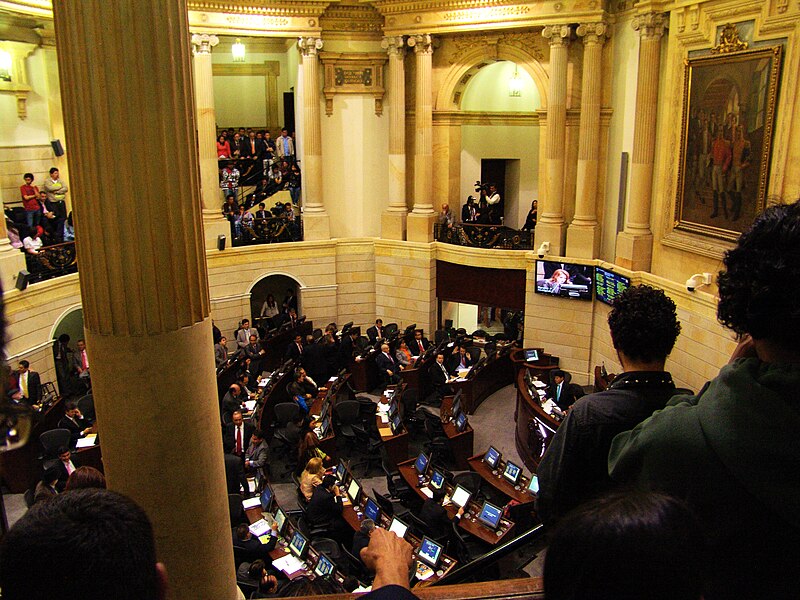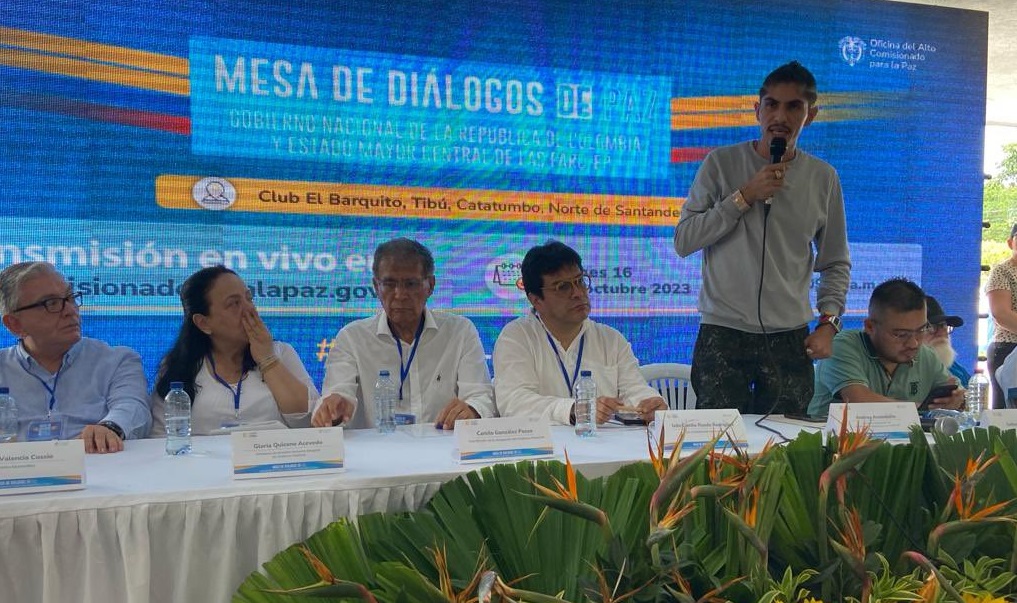
The President of Colombia, Gustavo Petro, has spoken for weeks about an alleged soft “coup” against his government. Petro has connected various judicial decisions against him and the latest accusation of supposed irregularities in his 2022 election campaign as efforts by the traditional ruling class to undermine his reform agenda.
When the Colombian head of state mentions a “soft coup,” he does not mean a suspension of the Constitutional order by force, in the traditional sense, through violent military actions against legality. Instead, Petro claims that different branches of the state, many controlled by individuals close to or directly linked to the conservative opposition, are using their resources to undermine his right to govern.
The political conflict in Colombia occurs within the institutions
With the inauguration of President Gustavo Petro in August 2022, political leftism gained power in Colombia for the first time in history. Until then, conservative or liberal governments had alternated in power. The arrival of Alvaro Uribe in 2002 broke this dual monopoly between liberals and conservatives, opening up the head of state to supposedly independent options.
However, the left’s chances of winning the presidency in Colombia remained slim. Decades of armed struggle, legal barriers to a democratic political space for Colombian progressivism, and a conservative-leaning country had denied this possibility at the ballot box.
After various attempts, Gustavo Petro, a former M-19 guerrilla member who abandoned armed struggle more than thirty years ago, achieved what seemed impossible: the presidency. However, although Colombia is a presidential country, the Constitution clearly states that Congress is the dedicated institution for discussing and approving laws.
Despite support for the president from the leftist ‘Historical Pact’ coalition, which is the largest representation of progressive deputies in the country’s history, the group still lack the voices to pass government’s proposals and legislative changes.
This is a significant challenge for the Petro administration, which needs to negotiate and reach agreements on those laws with other parties. The process is however proving difficult, especially regarding laws that often aim to prioritize the state’s role in a country where private management of public resources has for long been the norm.

Resistance against the reforms
Economic sectors and their political allies, negatively impacted by these government reforms, are actively resisting. The resistance to losing benefits and influence is strong, often driven more by economic interests than political convictions.
This was evident in the unsuccessful attempt at healthcare reform, a sector primarily funded by public money but managed by private companies profiting from this arrangement. The same is true for pension reform, which seeks to have the majority of Colombian workers’ savings managed by the state rather than by competing private funds.
President Petro has repeatedly asserted that he is justified in pushing for these fundamental changes, as he was elected two years ago for this purpose. However, this is only partially true. While it is true that he was elected with the support of eleven million voters, the presidency alone is not sufficient to reshape the state in just four years, especially without the backing of other political forces represented in Congress.
“Soft coup” or legislative incapacity in Colombia
What the Colombian president repeatedly describes as a “soft coup” is actually legislative incapacity, resulting from a failure to understand the dynamics of a liberal democracy. It is clear that economic powers are using all their considerable resources to oppose reforms and discredit the government. However, understanding political mechanisms should lead to a smart and, above all, effective response.
Many have criticized the president’s claims. The latest criticism comes from independent senator and former head of the peace delegation that negotiated with the FARC in 2016, Humberto de la Calle. The parliamentarian has urged the president to “stop playing the victim,” especially regarding the external image he projects by claiming that “they want to bring him down.”
De la Calle asserts that there are no real signs of a plan to overthrow the president and suggests that Petro “should calm down.” The senator finds the rhetoric of supposed coups unacceptable and believes it should “terrify” the international community.

Facts for the second part of the term
Just a few months away from the midpoint of his presidential term, which extends until August 2026, Gustavo Petro and his government have just over two years left to deliver some achievements for their electorate. According to the Constitution, the president cannot run for reelection, nor can he publicly endorse a successor.
However, the restructuring within the Colombian left, particularly through the creation of a new party that unifies the various groups and sensibilities currently making up the ruling coalition, the Historical Pact, presents an opportunity for continuity. For this to occur, it would be crucial for the government to provide tangible achievements to the citizens.
The promised social reforms, possibly too ambitious considering the insufficient parliamentary majority to enact them, are facing a path full of challenges and uncertain outcomes. Moreover, the Total Peace program, the government’s initiative to engage various illegal armed groups in dialogue aimed at peace and their demobilization, is also encountering obstacles.
In this context, the various negotiation tables, such as those ongoing with guerrilla groups like the Central General Staff (EMC) and the National Liberation Army (ELN), might have benefited from less public exposure and more discretion. Likewise, the ceasefires agreed upon by the government have not proven effective so far, and there is concern that they may have potentially strengthened guerrilla presence in certain areas of the country.

The main achievement of Gustavo Petro’s presidency
During its first two years in power, the Petro administration recognized the complexities inherent in governance while holding the presidency. In a parliamentary democracy, effective governance involves considering and cooperating with various centers of power.
The challenges in advancing proposed reforms have highlighted the importance of recognizing that the positions of both the executive branch and the opposition are legitimate within the institutional framework. This situation underscores the need for the government to adapt its approach and seek agreements with parties that share closer alignment with its policies.
As it stands, President Petro’s administration has approximately 27 months remaining in its term to implement his program and advance his reforms, albeit potentially less ambitious than initially envisioned. Achieving these goals is crucial to demonstrate the viability of a left-wing governance model within the framework of political alternation in a liberal democracy. Failure to do so could be seen as a significant setback for the administration.

See all the latest news from Colombia and the world at ColombiaOne.com. Contact our newsroom to report an update or send your story, photos and videos. Follow Colombia One on Google News, Facebook, Instagram, TikTok and subscribe here to our newsletter.


